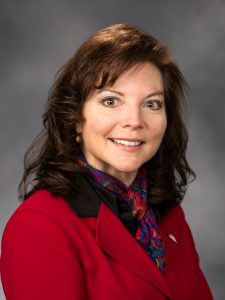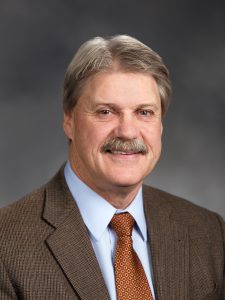This guest column was published in The (Tacoma) News Tribune, Aug. 13, 2015. In June 2016, the Inslee Administration released a new plan to impose carbon-cap regulations without a vote of the Legislature.
By Sen. Sharon Brown, R-Kennewick, and Sen. Tim Sheldon, D-Potlatch
Gov. Jay Inslee is threatening, in the name of the environment, to impose a costly carbon cap on Washington – really a tax by another name.
It wouldn’t make a difference to the global climate, but we can be sure it would choke economic growth in this state, drive up gas prices, make it more expensive for you to heat your home and create great hardship for seniors and the working poor.
Somehow the governor has gotten the notion he can implement this scheme without a vote of the Legislature or the people, and odds are the lawyers will argue that question for years. Before that happens there is a more important question we should consider: Is there a better way?
Of course there is. In the state Senate this year we saw the emergence of a fresh, new approach to carbon reduction and clean energy. Our plan doesn’t use the heavy hand of government to strangle the economy, nor does it give regulators the chance to cut special deals with the industries they favor.
Rather than enacting a punitive and expensive scheme, we would unleash the power of innovation, creating new industries and high-paying jobs in the process.
There is an important point to remember about this debate: It takes no courage for politicians to make speeches against global warming, ocean acidification, forest fires and drought. No one is in favor of these things. But the governor and others can never show us in a quantifiable way how higher taxes in this state will prevent the harms they like to describe.
Washington already is one of the greenest states in the country. We get roughly 90 percent of our electricity from hydropower, nuclear energy and wind, and that percentage will increase when the state’s only coal plant is shut down.
We produce just two-tenths of one percent of the world’s carbon, and that share is falling as carbon production in China and India increases. Over the next 50 years, we will get even greener as individuals make the choice to replace gas-powered cars and trucks with electric vehicles and zero-carbon-emitting energy sources like modern nuclear power become more readily available.
So what should we be doing? We can help speed this technological revolution along, position our state as a global leader and reap the profits this new clean-energy development will generate. If we don’t do that, we really are putting our heads in the sand.
We started this effort in the Senate this year. We offered a first-of-its-kind proposal to turn the state’s cumbersome and unproductive renewable energy law into a measure promoting clean-energy technology.
Currently the state’s inflexible energy purchasing requirement forces utilities to buy electricity they don’t need, mainly from wind-power developers. The bulk of the money goes out of state. To offset that increase in their cost, utilities will raise electricity bills dramatically, yet carbon emissions will not be reduced.
Our plan allows utilities to comply with this purchasing requirement by investing in programs like conservation, electric-vehicle charging stations and conversion of the state ferry fleet to liquefied natural gas. We don’t limit the options – anything that reduces carbon is fair game. We could reduce Washington’s output by a million tons annually as soon as next year.
We’re also pressing the case for small, modular nuclear reactors. Considerable work has gone into these next-generation designs, making them safer, smaller and more affordable. Already several companies in this state are working with this technology, and the current governor, our previous governor, the president and the nation’s secretary of energy say they are in favor.
There are many ways we could be promoting a role for our state in developing this technology, but we face partisan and ideological opposition where there should be none. It is inexcusable that Washington, with its long history in this field and its deep knowledge base, is not preparing to lead this revolution. Instead we risk driving it elsewhere.
With these and other ideas, the Senate offers a coherent philosophy of clean-energy promotion without punishment – carrots, not sticks – at no cost to Washington’s economic vitality.
State Sens. Sharon Brown, R-Kennewick, and Tim Sheldon, D-Potlatch, are members of the Senate Energy, Environment and Telecommunications Committee and also serve on the bipartisan Washington State Joint Select Task Force on Nuclear Energy.










